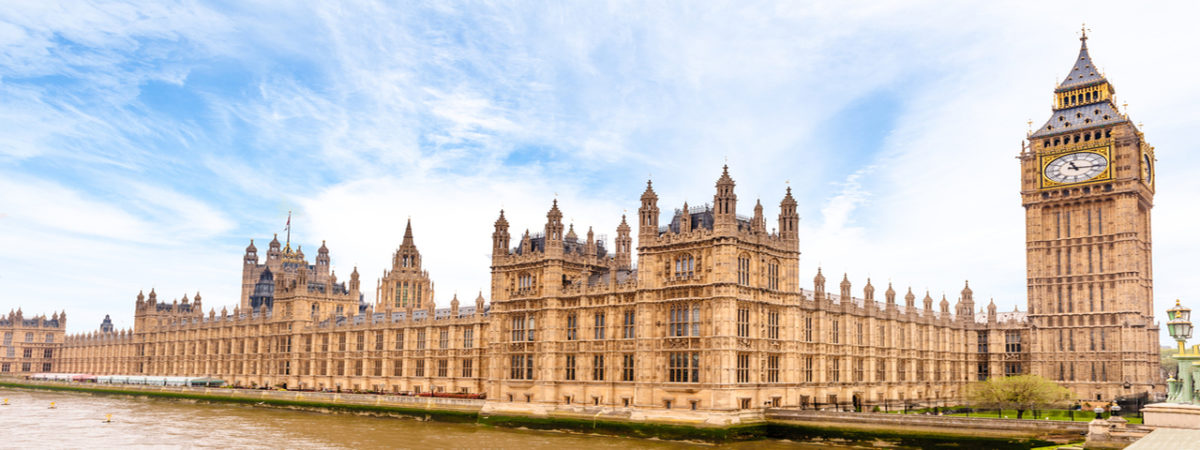If Scandinavia is a socialist paradise, so is Britain
SUGGESTED



≈50% “Who funds you?” or some variation thereof (which is an extremely low share, compared to previous publications)
≈30% Praise/endorsement
≈10% “Of course socialism works – look at Scandinavia! Funny you don’t mention that!”, or some variation thereof
≈10% Miscellaneous, such as “Yes, of course the Soviet Union was socialist. And it was a great success.”
I am going to write a proper rejoinder in a couple of weeks, when I’ve got more detailed feedback from more readers, but for now, let me just briefly pick up on the point about Scandinavia.
It is, of course, not true that I don’t address this issue: subchapter 1.3 is about nothing else.
More specifically, it spells out the difference between socialism on the one hand, and Nordic/Germanic social democracy on the other hand. It shows that this is not a difference in degree. Sweden and Denmark are not “somewhere in between” Hong Kong and North Korea. It is a qualitative difference.
In a nutshell: the Nordic economies are relatively liberal, relatively lightly-regulated market economies, with relatively low levels of state intervention – but they are also, at the same time, economies characterised by high taxes, generous welfare states, and generously funded public services.
They tend to score highly on the World Bank’s “Ease of Doing Business” Index, and on the various Economic Freedom indices – except in those subcategories that look specifically at the tax burden. From a classical liberal perspective, this is far from ideal, but it is not such a bad arrangement. In most of the world, the state taxes you less, but it gets in your way in numerous other ways.
Clearly, this is not the way the Nordic economies are perceived in Britain. They are usually singled out for their generous welfare states – and that is largely it. They are reduced to that aspect.
For all intents and purposes, in Britain, when somebody talks about “the Nordic model”, what they mean is “a large welfare state”.
However, once you start calling countries “socialist” because they have a large welfare state, you quickly run into a problem: you would then also have to describe the UK as “socialist”.
The OECD’s Social Expenditure Database gathers data on social spending (old-age related benefits, statutory healthcare, unemployment benefits, disability and incapacity-related benefits, family benefits such as childcare subsidies, housing-related benefits, labour market programmes…) in an internationally comparable format. At first sight, the Nordic welfare states appear indeed to be considerably more generous than their British counterpart, on this measure.
But this is largely due to an oddity of their systems (or, depending on your perspective, an oddity of ours): in the Nordic countries, people pay taxes on the income transfers they receive from the government. This is, of course, ultimately an accounting trick. In this way, we could quite easily increase the size of the welfare state without spending a single extra pound. The government could simply claim that every £1 paid out in, say, tax credits, is actually a payment of £2, which just happens to be taxed at a rate of 50%. Or a payment of £3, which is taxed at 66.6%. And so on.
The OECD tries to account for such international differences in the tax treatment of income transfers by also compiling a measure called net social expenditure, where “net” means “net of direct taxes”. On this measure, it doesn’t matter whether you receive £1 taxed at 0%, £2 taxed at 50%, or £3 taxed at 66.6%. The OECD will treat all three as the same thing: a net transfer of £1.
On this measure, almost all of the difference in size between the British and the Nordic welfare states disappears. Let’s ignore Norway, which, with its oil wealth, is a bit of a special case. Let’s ignore tiny Iceland as well; I’ve just included those for the sake of completeness.
Even so: if Denmark, Finland and Sweden are The People’s Promised Land, while the UK is a neoliberal hellhole of savage austerity capitalism, then heaven and hell are a lot closer together than we previously thought.

So good news, socialists! You can call off the Revolution. We are already almost all of the way there, and given that the current government has officially given up on fiscal consolidation, it won’t take long until we’ve reached the Democratic People’s Republic of Great Britain.
Unless, of course, you want to switch back to a more conventional, i.e. the dictionary definition of “socialism” (=“collective or governmental ownership and administration of the means of production and distribution of goods”). In which case, I have a book recommendation for you.
7 thoughts on “If Scandinavia is a socialist paradise, so is Britain”
Comments are closed.





Interesting comparison but if net social expenditure is similar in the UK and the Nordic countries then why do the Nordic countries have significantly higher tax burdens-what are they spending this extra money on? Not defence I would imagine?
As you know, this “what about Sweden” is the most sticky comeback , in my opinion, hauled out by leftist to induce us and themselves into government intrusion. I have heard many rebuttals from very well schooled individuals on the right try to argue that the Scandinavian countries are not really socialist, and it is usually tortuous. Much too involved to effectively use in a face to face discussion with a political opponent. The easy response I hear is, “Well, whatever that is, that’s what we should do”, and government intrusion in these countries are a hallmark of what they stand for. Your above comments may be correct, and I believe that they are, but very ineffective in a verbal knife fight. You and your right thinking companions at iea would earn tremendous kudos from we working stiffs if you would articulate a reasonable, but pithy rejoinder to these naïve/nefarious collectivist on this point. This, in my opinion, would do the most to halt this creeping move to the left that we are experiencing in the US ,GB and the West in general. This, right here, is where we need you. Please help us all before its too late.
Mike’s appeal for help lies, perhaps, in the question posed by John. The UK achieves very similar levels of net welfare (emphasise the net) but without those high taxes.
Fantastic article!
UK has a Labour Party functioning like US Democracts forcing the hand of the Conservatives/Republicans to redistribute wealth to create nanny state & bigger welfare burden. Labour/Democracts like it when the general population is reliant on them and less independent – both want to crush Capitalism & usher in Socialism-borderline Communism and get others to pay for it
Why would you exclude Norway for it’s oil wealth when in a comparison with the UK?
The North sea was split fairly evenly between the two nations for oil. The UK privatisation approach was less sucessful than Norway with more state involvement and investment.
Surely this makes Norway more applicable for comparison than the rest of scandinavia, particularly when trying to make points about socialism…
Oil was (quite properly) split between Norway and UK. But Norway has <1/12th the UK population.